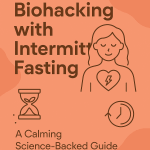Are you salt sensitive? This idea was new to me, but it is quite interesting! So buckle up. Here we go! Health professionals say that even if your blood pressure is normal, excess salt in your food can affect your blood vessels, heart, kidneys, and brain.
Salt sensitivity
Researchers say that if the blood pressure increases during a period of high dietary sodium or decreases during a low sodium period, the person is salt sensitive. If there is no change in blood pressure with sodium restriction, a person is salt resistant.
Harmful effects of salt
I am not exaggerating, just repeating what the research studies say.
Excess intake of salt through food can affect your arteries and result in reduced function of the endothelium. This endothelium is the layer that lines various organs, especially the blood vessels and the heart.
If the endothelium is affected, coagulation, platelet adhesion, and immune function will be affected. Increased salt levels can result in arterial stiffness, which may lead to heart attack and stroke. Enough is enough, you may say, but more is yet to come.
Increased dietary sodium can cause the thickening of the chambers of the heart, especially the lower chambers. The heart may find it difficult to pump effectively, which may hinder its performance.
Increased salt levels can affect the function of the kidneys, so say, researchers.
Sodium affects the sympathetic nervous system, which is responsible for fight or flight response. To put it simply, you can say that it is an alarm reaction to deal with physical threats.
High salt levels can affect the brain; it can cause the neurons in the brain to produce a greater response than is needed. This increased response to a variety of stimuli can affect the organs.
Recommended salt intake
The American Heart Association recommends less than 1,500 mg of salt per day. It would be wise if you cut on processed foods and hotel foods. And prepare delicious home foods with less salt, flavored with herbs to pep up your taste buds.














